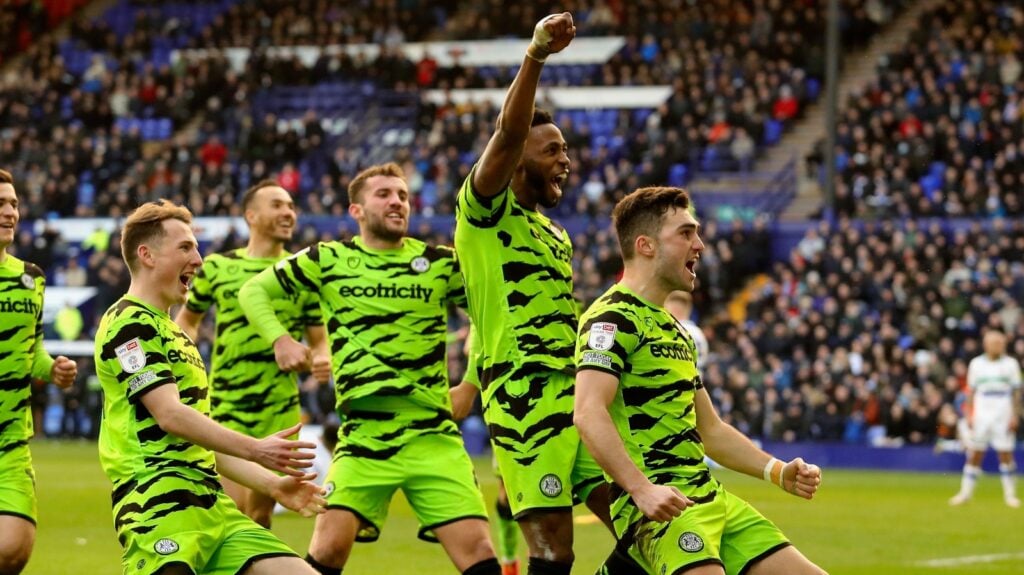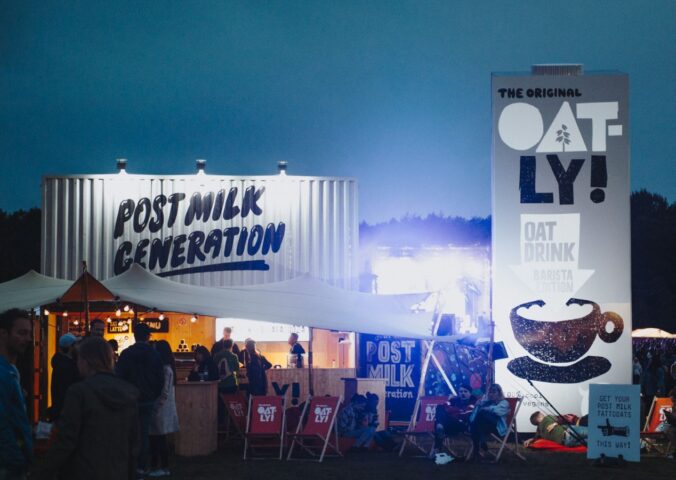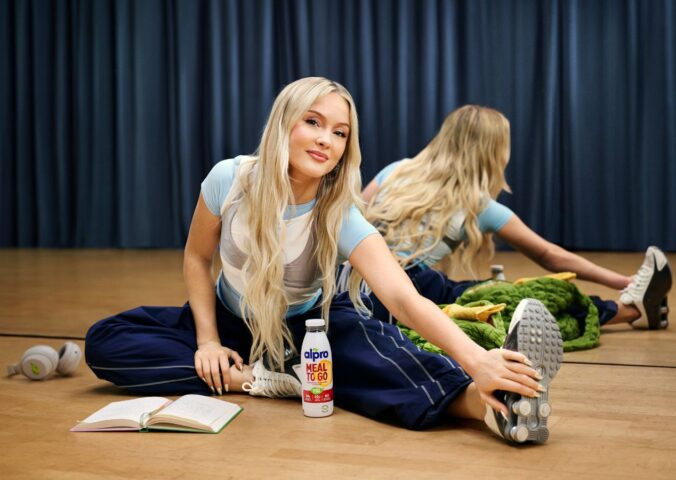Earlier this year, German football team VfL Wolfsburg decided to rid its stadium of cow’s milk. Instead, it replaced it with oat milk.
But while the move was made with sustainability in mind, it was met with widespread backlash. Namely from the dairy industry. Ultimately, VfL Wolfsburg was pressured into reversing its decision.
But plant-based soccer teams do exist. Forest Green Rovers, for example, claims to be the world’s first carbon-neutral football club. It only serves players and fans vegan food. And, it’s thriving: in April, it was promoted to League One in the English Football League.
Could VfL Wolfsburg follow suit and go plant-based? It’s complicated.
VfL Wolfsburg’s oat milk backlash
Back in March, VfL Wolfsburg first announced it was collaborating with plant-based brand Oatly. The dairy industry was furious.
Local dairy company Uelzena wrote to the club expressing its concern. A butter producer also threatened to boycott the club’s parent company Volkswagen altogether. (The German multinational automotive company also inspired backlash last year when it stopped serving its signature currywurst in the canteen at its Wolfsburg factory. Instead, it offered more meat-free options.)
Then, Germany’s farmers’ association started a smear campaign against Volkswagen over VfL Wolfsburg’s decision. (It’s worth noting that Volkswagen is based in, and part-owned by, Lower Saxony, the biggest agricultural state in the country, holding 11.8% shares in the company.)
Eventually, VfL Wolfsburg gave into pressure. Now, instead of being the default as intended, oat milk is only offered on request.
Plant-based football is possible
Dale Vince, eco-entrepreneur and the chairman of Forest Green Rovers, says he’s not surprised at the backlash faced by VfL Wolfsburg. He recalls similar incidents when his own club went meat-free.
“Organizations that go plant-based will always receive backlash from farmers and dairy organizations with a vested interest,” he told Plant Based News. “People are entitled to their views, and many will want to protect their livelihoods.”
Vince took over Forest Green Rovers in 2010. At the time, it was facing bankruptcy. Gradually, as he built the club up, he slowly reduced the amount of meat that was served to players and fans. As a passionate vegan, he felt he had no alternative but to take animal products off the menu.
“On my first day of being the custodian of the club, I discovered our chef at the time serving up a huge beef lasagne and knew something had to change,” he explained. “I’d been vegetarian since my teens and a vegan for the last 20 years and had inadvertently become part of the meat trade. That was just not going to happen.”
First red meat was taken off the menu, which in itself generated a lot of press. Newspapers like The Sun ran sensationalist headlines about a “red meat ban,” but it actually helped to raise the club’s profile. After that, chicken came off the menu, followed by fish, and in 2015, everything was vegan.
“Fans didn’t disappear. In fact, we started bringing in people that were fans of our principles first, and football second, which was an unexpected bonus,” recalls Vince. “We still get the occasional ‘where’s your burger van’ or ‘stop eating our grass’ chant when our players get fouled from visiting fans, but that’s all part of the fun.”
He added: “We’ve had to add additional capacity to all of our kitchens and hospitality offerings.”
Oat milk is a more sustainable choice
Like VfL Wolfsburg, Forest Green Rovers partnered with Oatly on its dairy-free milk options.
Oat milk is better for the planet than cow’s milk. Drinking one glass of dairy milk a day contributes 229 kilograms to a person’s annual greenhouse gas emissions. But drinking the same amount of oat milk contributes just 65 kilograms.
VfL Wolfsburg teamed up with the United Nations on its Race to Zero initiative in 2020 to reduce its own emissions, and its attempt to move away from cow’s milk was part of that commitment.
“A food system shift is urgently required for the sake of both people and the planet. Food production is responsible for a third of global GHG emissions – with more than half coming from animal production,” said Oatly spokesperson Lucy Hopkins-Parkinson.
“We’re really proud to support pioneers like Wolfsburg and Forest Green Rovers who should be commended for leading this change to a more plant-based diet,” she added. “Especially in the world of professional sports, where sadly it is not yet the norm.”
A plant-based future of sport
But the world of sport is changing, slowly.
Footballers, like Chris Smalling, Héctor Bellerín, and Alex Morgan, for example, are speaking out about the benefits of a plant-based diet. And they’re also investing in the future of plant-based food.
Last year, footballer Dele Alli invested in Next Gen Foods, and Smalling has also invested in plant-based brands. Last month, he even set up his own eco-friendly venture capital fund.
But when it comes to making club-wide changes, Vince acknowledges that it isn’t easy. However, he encourages more to “hold their nerve.”
“When I took Forest Green Rovers plant-based, there was no going back,” he said. “If anything, my single-mindedness should encourage others to do what we’ve shown is possible.”
This article was updated on August 1, 2022, to clarify that Volkswagen, not Vfl Wolfsburg, received backlash for introducing one vegetarian canteen. It was also updated to clarify that Lower Saxony holds 11.8 percent shares in Volkswagen.






